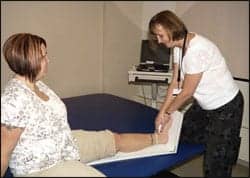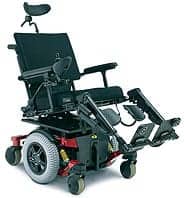By Megan Rauscher
NEW YORK (Reuters Health) – In a case-control study, researchers found measurable decrements in neurocognitive function in intercollegiate athletes who suffered noncontact anterior cruciate ligament injuries, compared with those who did not experience these injuries.
"The results suggest that slower processing speed and reaction time, as well as lower visual and verbal memory performance, may predispose a person to errors in coordination during physical activity that can lead to injury," Dr. Charles Buz Swanik from University of Delaware in Newark told Reuters Health.
He and his colleagues designed their study to determine whether athletes who experience a noncontact anterior cruciate ligament injury show decreased baseline (preseason) neurocognitive performance when compared with controls.
They matched 80 intercollegiate athletes who, after neurocognitive testing, suffered a noncontact knee injury, with 80 controls who did not experience a noncontact knee injury.
There were statistically significant between-group differences on all four neurocognitive tests, the team reports in the June issue of the American Journal of Sports Medicine.
Compared with uninjured controls, knee-injured athletes showed significantly slower reaction time and processing speed and performed worse on visual and verbal memory.
Much of the previous research on mechanisms behind noncontact knee injury has focused on measuring muscle activity and limb alignment, Dr. Swanik explained. However, noncontact knee injuries "are the result of the person’s choice in a movement strategy, which occurs in the brain. This coordination of muscle contractions requires a great deal of advanced mental preparation — thinking ahead to anticipate events — but also a capacity to react to the unexpected," Dr. Swanik said.
"Mild neurocognitive deficits may cause spatial disorientation or loss of situational awareness that disrupts the coordinated muscle contractions needed for joint protection," he added.
Dr. Swanik believes more research is needed focusing on the link between mental skills, coordination and injury proneness. "There may be an alternative application for neurocognitive testing in the area of injury prevention," he said.
Copyright 2007 Reuters. Click for Restrictions




